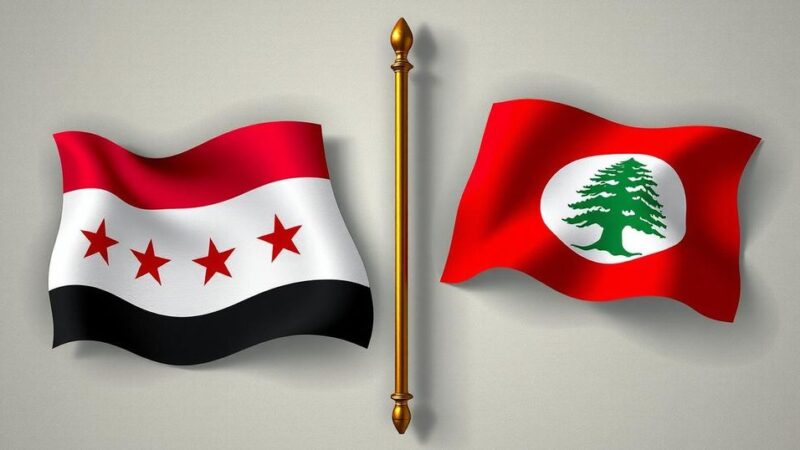The Egyptian military confronts heightened smuggling activities along its Sudanese border, particularly in gold and fuel, as the conflict in Sudan has intensified illegal trade. While cracking down on various smuggling networks, Egypt appears to overlook gold trafficking due to its perceived economic benefits. Amidst military responses, local smugglers are armed and organized, leading to ongoing tensions in contested regions like the Halaib Triangle, compounding the challenges both nations face in maintaining border security.
The Egyptian military is actively engaged in combatting smuggling activities along its border with Sudan, where a surge in illegal trade, particularly in gold, has been exacerbated by the ongoing conflict in Sudan. Smugglers, empowered by the chaos ensuing from the war since April 2023, have expanded their operations to include not only gold but also weapons, fuel, and human trafficking. This unrest has led Egypt to bolster its military presence, utilizing helicopters and heavy weaponry to confront these smuggling networks effectively.
Eyewitness accounts indicate that gold has become a lucrative commodity transported from Sudan into Egypt. This situation arises partly because the Egyptian authorities apparently turn a blind eye to gold smuggling, viewing it as beneficial to their beleaguered economy, while simultaneously cracking down on other illicit goods. The respective tribes involved in smuggling activities—Ababda, Rashaida, and Bishari—navigate this dangerous landscape, where the need for fuel in Sudan provides a commercial incentive to transport subsidized fuel from Egypt.
During this turbulent time, local sources reported that the Egyptian army employs various tactics to thwart smuggling, including aerial assaults. However, smugglers armed themselves to defend against military incursions, resulting in ongoing conflicts at the border. The lucrative nature of this trade has attracted numerous players, and tensions have escalated as competition for valuable resources, particularly gold, intensifies.
High-pressure situations exist in contested territories such as the Halaib Triangle, where both Sudan and Egypt stake their claims over rich mining lands. Reports of violent confrontations between authorized military forces and local miners underscore the volatility of this area. Additionally, smuggling operations extending beyond borders involve complex networks reaching into Chad, Eritrea, and South Sudan, further complicating the regional dynamics surrounding gold trafficking.
The ongoing conflict in Sudan has created a chaotic environment conducive to illegal smuggling, prompting regional unrest and instability. Over the years, the Sudanese-Egyptian border has become a hotbed for various smuggling operations, taking advantage of the porous nature of the border and the ongoing power struggle in Sudan. As traditional governance mechanisms falter, illegal trade routes have proliferated, appealing to opportunists seeking profit in this lawless context. The Egyptian economy, facing significant challenges, finds itself caught between attempting to suppress smuggling while relying on the influx of gold from Sudan to bolster its financial standing. This scenario is compounded by historical disputes in the region, particularly in contested areas such as the Halaib Triangle, and the involvement of various tribes straddling the border, thereby complicating the enforcement of laws and maintaining order. Transnational crime and its ramifications heighten existing regional tensions, illustrating the intricate connections between local unrest, illicit trade, and geopolitical interests.
In conclusion, Egypt faces a multifaceted dilemma along its border with Sudan, where a surge in smuggling—particularly in gold—poses significant economic and security challenges. The military’s aggressive response is aimed at curbing this illegal trade while navigating the fallout from Sudan’s ongoing conflict. However, the interplay of local resistance and the lucrative nature of the smuggling networks underscores the complexity of the situation. As regional dynamics evolve, particularly concerning the contested Halaib Triangle, the geopolitical and social implications of these smuggling activities will continue to pose challenges for both Egypt and Sudan.
Original Source: www.middleeasteye.net







